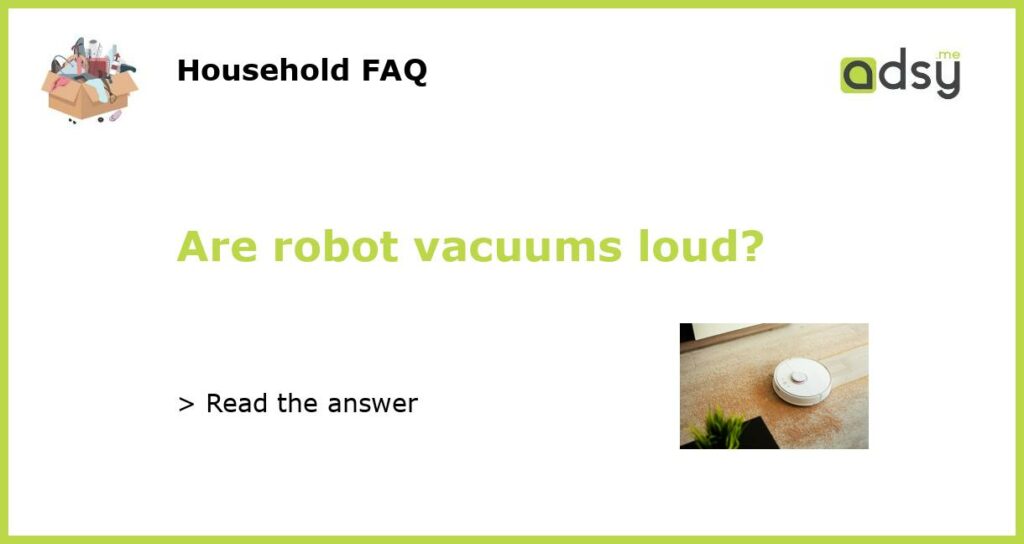Robot Vacuums: The Quest for Quiet Cleaning
If you’re considering purchasing a robot vacuum, one of the most important factors to consider is its noise level. No one wants a cleaning device that disrupts the peace and quiet of their home. But just how loud are robot vacuums? Let’s explore the noise levels of these automated cleaning machines.
Noise Level Comparison: Robot Vacuums vs. Traditional Vacuums
When it comes to noise levels, robot vacuums have a significant advantage over their traditional counterparts. Traditional vacuum cleaners are notorious for their loud noise levels, often reaching up to 75 decibels or more. This can be attributed to their powerful motors and the physical contact they make with the flooring surface.
On the other hand, robot vacuums are designed to be as quiet as possible. Most robot vacuums operate at around 55-70 decibels, which is generally considered to be on the quieter side. This is comparable to the noise level of a normal conversation or background music. Some models are even quieter, producing noise levels as low as 50 decibels or less.
It’s important to note that noise levels can vary depending on the brand and model of the robot vacuum. Some high-end models use advanced noise reduction technology to further minimize noise levels, making them virtually silent during operation.
Factors Affecting Robot Vacuum Noise Levels
There are several factors that contribute to the noise levels of a robot vacuum:
- Motors and Fan: The motors and fans inside a robot vacuum are responsible for creating suction and airflow. These components can produce noise, especially if they are powerful.
- Brushes: The brushes used in robot vacuums, such as bristle brushes or rubberized brushes, can also contribute to noise levels. Some brushes may generate more noise when they come into contact with surfaces.
- Flooring Type: The type of flooring in your home can affect the noise produced by a robot vacuum. Hardwood floors tend to produce less noise compared to carpets or rugs.
Tips for Reducing Robot Vacuum Noise
If you’re concerned about the noise levels of your robot vacuum, here are a few tips to help reduce the noise:
- Choose a Quieter Model: Research different robot vacuum models and choose one that advertises low noise levels.
- Opt for Rubberized Brushes: Rubberized brushes tend to generate less noise compared to bristle brushes, making them a quieter option.
- Schedule Cleaning During the Day: If the noise bothers you, schedule your robot vacuum to clean while you’re away from home or during a time when the noise won’t be disruptive.
- Keep Doors Closed: Closing doors to the rooms you don’t want the robot vacuum to enter can help contain the noise to a smaller area.
Finding the Right Balance
Ultimately, the noise levels of a robot vacuum will depend on several factors, including the model, flooring type, and personal preference. If noise is a major concern for you, make sure to research and compare different models before making a purchase decision. Look for models that offer noise reduction features and positive reviews regarding the noise level.
While robot vacuums may not be completely silent, they have significantly lower noise levels compared to traditional vacuum cleaners. With advancements in technology, robot vacuums are becoming quieter and more efficient, making them an appealing option for those seeking a quieter cleaning solution.
In conclusion, robot vacuums are generally quieter than traditional vacuum cleaners, operating at noise levels similar to normal conversation or background music. Factors such as motors and fans, brushes, and flooring type can affect the noise levels of robot vacuums. By following some tips and guidelines, you can minimize the noise generated by a robot vacuum and enjoy a quieter cleaning experience.






